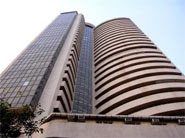
Currently, the Indian markets are in doldrums and nobody is talking of stocks or investments. You may think justifiably so, as the markets are headed in no direction. Is it not exactly the opposite of the exuberant times we were witnessing a few months back. Conversely, bottoms are made in turbulent times.
It is difficult, if not impossible, to say when the markets will halt their southward journey and change direction for the better. Who knows, we might have already hit the bottom and the markets may soon return back to their upward trajectory. My empirical observation and research have proved it that wealth making in the market has more to do with discipline and the power of time to compound growth than being smart at stock picking and timing the markets just right.
To help you in your quest to make wealth in our markets, I suggest you follow the golden rules of markets that will virtually ensure reasonable, steady wealth appreciation.
Bear in mind, you cannot have your cake and eat it too. Saving and consumption do not go hand-in-hand. You need to plan today for the lifestyle you want after you stop working, i.e. the finances you will require after you retire. Accordingly, save the necessary portion of your income to invest in equities. Equities, or stocks, may appear risky, but they are just volatile, they go up and down, and time is the perfect hedge against volatility.
Therefore, Rule No 1: Plan for tomorrow, today. Start saving for it now! Stagger your investments throughout your earning phase. Invest regularly and invest for the long term to buy in at an average price that includes both markets’ up and down ticks.
Never wait until you have large amounts of money to invest. However small the amount you are able to save, start early. The earlier you start, the better are your chances of making great wealth. Remember to make great gains. Time is a crucial factor, as wealth creation is a factor of both the power of compounding and the returns on your investments.
Accordingly, Rule No 2: Start early so that the power of compounding begins sooner; time is the magic that converts paise into rupees. In exuberant phases, when we have earned good money from our investments, most of us get greedy, and derivatives and futures provide an outlet for the expression of human greed. While such instruments often satisfy the whims of human greed, if taken to unrealistic levels, irresponsible investment in these securities can lead to financial ruin.
Hence, Rule No 3: Do not leverage, it is difficult, if not impossible, to predict short-term trends.
Buy markets, not stocks. We all know that our economy is in a secular phase of prosperity and the stock market is the best proxy for the growth of an economy. To benefit from our soaring economy, buy the market as a whole and not any single stock.
Consequently, Rule No 4: Buy stocks that mirror the broader indexes, but never buy a single, or a handful of stock exposures. This means that you need to spread your risk across various market segments in the event a particular stock does not perform for reasons beyond the company’s control. It is easier to predict company earnings, but difficult to predict stock prices of the same company in the short run. Ironically, over the long term, stock prices mirror growth in a corporation’s earnings.
“Wish you all happy savings and happy investments” – Global NEWS.
Keywords: Investments, Savings, Sensex, Dalal Sreet, Equities, Mutual Funds.


























